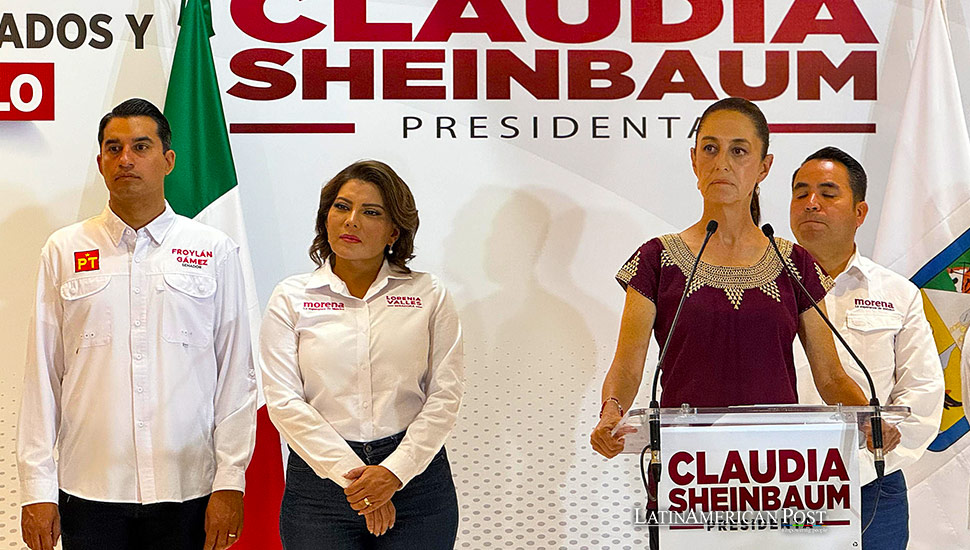Mexico to Harness Lithium for Electromobility

Claudia Sheinbaum, Mexico’s ruling party presidential candidate, announces plans for a new technology developed by the Mexican Petroleum Institute to extract lithium from clay, positioning Mexico as a leader in the global electromobility industry.
In a significant development that could reshape Mexico’s economic and environmental landscape, Claudia Sheinbaum, the presidential candidate from the ruling party, has pledged to advance the country’s role in the global electromobility sector. Speaking in Hermosillo, the capital of Sonora, Sheinbaum detailed plans for the Mexican Petroleum Institute (IMP) to spearhead a groundbreaking initiative to extract lithium from clay—a vital component for electric vehicle (EV) batteries.
Mexico’s Lithium Challenge: Extracting from Clay
Mexico, home to one of the world’s largest lithium reserves in Sonora, faces the unique challenge of extracting the mineral from clay. This process is still in its nascent stages globally. This endeavor is crucial as the demand for lithium, pivotal in producing electric vehicles, continues to surge. Sheinbaum’s administration aims to leverage these reserves to fuel Mexico’s transition to a significant player in the electromobility industry.
“Lithium and copper are strategic resources that play critical roles in producing electric vehicles,” Sheinbaum stated. “While copper extraction is well-established, developing efficient methods for lithium extraction from our unique clay deposits in Sonora is essential for our vision to drive the country forward in electromobility.”
This initiative is part of a broader strategy that seeks to extract and utilize lithium and develop the entire supply chain necessary for producing electric vehicles within Mexico. By doing so, Sheinbaum aims to bolster Mexico’s economy, reduce environmental impact, and position the nation as a leader in sustainable technology.
Nationalizing the Lithium Industry
The move to nationalize the lithium industry, marked by the Presidential Decree in February 2023 expropriating the lithium deposits and establishing LitioMX, signifies a pivotal shift towards self-sufficiency. However, the technical challenges of extracting lithium from clay have delayed production, a hurdle that Sheinbaum is confident will be overcome with the development of new technologies by the IMP’s geologists and engineers.
The implications of Mexico’s push into lithium extraction and electromobility extend beyond its borders, reflecting a growing trend in Latin America. Countries like Argentina and Chile, rich in lithium reserves, similarly position themselves within the global supply chain of materials critical for renewable technologies. This regional pivot towards critical mineral extraction and technological innovation is part of Latin America’s broader strategy to enhance economic diversification and environmental sustainability.
Moreover, Sheinbaum’s policy initiatives are also poised to have social impacts. During her campaign tour, she has engaged with various social groups, including the Madres Buscadoras de Sonora—a collective of mothers searching for their missing loved ones due to organized crime. She pledged robust governmental support for victims and their families, reflecting her administration’s commitment to addressing social justice issues alongside economic developments.
Toward a Sustainable Future
As Mexico approaches its largest-ever elections on June 2, where the presidency, Congress, and numerous local positions are up for grabs, Sheinbaum’s proposals are drawing significant attention. Her plans to develop lithium extraction technology and boost the electromobility sector are campaign promises and strategic moves to redefine Mexico’s economic and social landscape.
If successful, Mexico’s endeavor to harness its lithium reserves could serve as a model for other Latin American nations. It would demonstrate how countries with strategic natural resources can capitalize on global trends towards sustainability and technology-driven industries. This shift could significantly influence the region’s economic stability and environmental policies, promoting a transition towards more sustainable and self-sufficient national economies.
Also read: Mexican Scientists Launch AI App for Real-Time Epidemic Surveillance
Essentially, Sheinbaum’s vision for Mexico’s future is a blend of innovation, sustainability, and social justice—elements that resonate deeply across Latin America as the region navigates its complex path toward modernization and global relevance in the 21st century.




